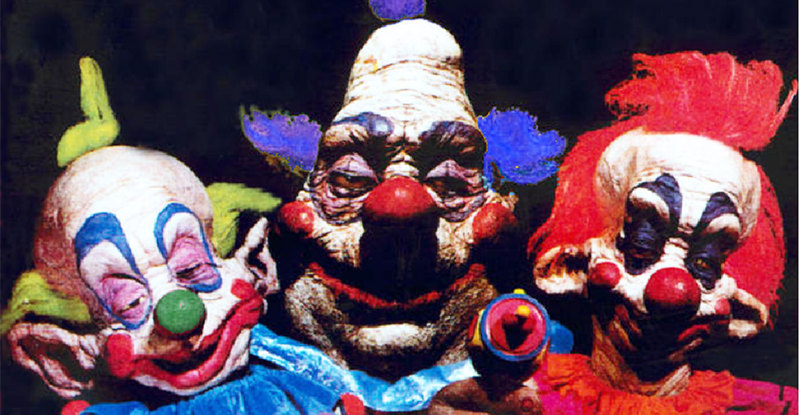Note: In the following joint Blu-ray review both John and Justin provide their opinions of the film, with John also writing up the Video, Audio, Extras, and Parting Thoughts.
The Movie According to John:
“Airplane!” was an influential film, one that is certainly important in and of itself (I mean, it’s darned funny), but one that is also important for what it engendered, what films it encouraged over the following decades. “Airplane!” was the brainchild of writers and directors Jim Abrahams, David Zucker, and Jerry Zucker. In 1980 they made a spoof of disaster movies, and in the process they wound up poking fun at just about every Hollywood movie cliché they could think of. The result is a nonstop flurry of slapstick sight gags, puns, innuendoes, exaggerations, caricatures, you name it. If one joke doesn’t get you, expect another one a second later that probably will. If you’ve never seen “Airplane!,” you’ll either find it hilarious or the silliest thing you’ve ever watched. I lean toward hilarious.
The movie takes aim primarily at Arthur Hailey’s “Airport,” but along the way it skewers as many disaster-movie stereotypes as time allows. The plot is simple (or simpleminded): The entire flight crew of a passenger plane bound from L.A. to Chicago is stricken with food poisoning, and only one other person on board can fly them to safety.
The hero is Ted Striker (Robert Hays), a former pilot who hasn’t flown since a tragic accident during “the War” (presumably the Second World War, judging by the flashback war footage, which would make Striker a man in his sixties at least, yet he’s played by a fellow clearly no more than thirty, one of the running jokes in the film). Striker’s love interest is a stewardess and former girlfriend, Elaine (Julie Hagerty), who ably assists him in his attempts to fly the plane and overcome his drinking problem (he can’t find his mouth with a glass of water). “I guess the foot’s on the other hand now.”
The biggest key to the movie’s success is casting Hollywood tough guys, macho actors, in comic parts and then asking them to play it straight. So, deadpanning their way through the shenanigans are Peter Graves as Capt. Oveur, Leslie Nielsen as Dr. Rumack, Robert Stack as Rex Kramer, Lloyd Bridges as McCroskey, and basketball star Kareem Abdul Jabaar as copilot Roger Murdock. It was this role-reversal gimmick more than anything else that inspired the later proliferation of movies like “The Naked Gun” and “Top Secret.”
Among the better moments: A little girl who needs a heart transplant serenaded by a well-meaning stewardess who separates her from her life support; the Mayo Clinic filled with shelves of mayonnaise; a nun reading “Boy’s Life” and a little boy reading “Nun’s Life”; a barroom brawl between two Girl Scouts; and not-quite-accurate subtitles for two African-Americans speaking jive. Besides “Airport,” the film parodies things like “Saturday Night Fever,” “From Here To Eternity,” “Knute Rockne, All American” (although it’s too bad the filmmakers didn’t get Pat O’Brien to do the takeoff on his famous “Win one for the Gipper” speech), TV commercials, and Tupperware parties.
“Surely, you can’t be serious?” asks Striker. “I am serious,” responds the doctor, “and don’t call me Shirley.”
It’s all very reminiscent of “Mad” magazine, surely Abraham and the Zucker’s inspiration, with every scene filled with background activity that’s at least as funny as the foreground material. Perhaps, though, the only gag that today’s audiences might not get is one involving Howard Jarvis, the California tax-cutting advocate, sitting in a parked taxi with the meter running throughout the film, his fare going higher and higher. Well, it was topical back then. Look, too, for cameos by Ethel Merman, Jimmy Walker, Kenneth Tobey, and a more substantial performance by Stephen Stucker as Johnny, the wildly prissy wacko who practically steals the show.
The Movie According to Justin:
Nearly everything that can be said has been about “Airplane.” John hit it right on the head: this is one of the funniest movies ever made. The best part is its rewatchability; I’ve seen “Airplane” a half-dozen times and pick up on new things each time. Few films get better with age, and “Airplane” is no exception. Fortunately the film gets better with experience; the more you know about cinema and late-70s pop culture, the funnier the movie will be. For instance, I got the “Spartacus” joke for the first time while watching the movie to prepare this review.
A wonderful mix of satire, slapstick and goofball comedy, “Airplane” is funny from start to finish. Whereas most comedy films have spots where they slow down, “Airplane doesn’t suffer the same woes. It’s fairly short, running just under an hour and a half, “Airplane” may not have a lot of story, but it sure does have a lot of funny.
There is no better way to put it: “Airplane” is a comedy classic. Loaded with laughs, there is a lot to love in this film.
Video:
Paramount have given what was already a good DVD picture an even better transfer in this high-definition Blu-ray edition, retaining the 1.85:1 ratio image with a dual-layer BD50 and an MPEG-4/AVC encode. Paramount video engineers appear to have done a little more restoration on the film because the 1080p transfer is excellent: clean, sharp, bright, vivid, well defined. While there is a little natural print grain during the opening titles, which we might expect, there is almost no sign of age or noise anywhere else in the film, even in the darker scenes. Skin tones look as perfect as one could want, with more-than-adequate black levels to set off the colors. Impressive.
Audio:
The Blu-ray disc uses lossless DTS-HD Master Audio 5.1 for the soundtrack, which may seem like overkill but does what is probably a near-perfect job in reproducing the remix. The sound is quite clear and reasonably dynamic, if a tad hard edged at times. A wide stereo spread makes up for any lack of surround activity, which is sparse. Elmer Bernstein’s B-movie inspired musical track gets a touch of ambient bloom in the side and rear speakers; otherwise, the front-center channel takes the brunt of the load, mostly dialogue, rendered smoothly and realistically.
Extras:
The extras derive from the previous “Don’t Call Me Shirley” edition, and they’re still worth pursuing. There’s a commentary from the writers and directors, Jerry Zucker, Jim Abrahams, and David Zucker, that includes not only a ton of information but a good deal of humor as well. Then, there’s a trivia track you can play that covers a lot of the same material.
If you choose, you can also watch the film in the “Long Haul” format, where you click on “TA” (Trans-World) icons every few minutes that take you to various comments from the writer/directors, producer, and stars, as well as to various deleted scenes.
The extras conclude with a widescreen theatrical trailer, not fully restored but presented in high def; twenty-six scene selections; bookmarks; a slipcover with a holographic picture on the cover; a flimsy Eco-case; English, French, Spanish, and Portuguese spoken languages and subtitles; and English captions for the hearing impaired.
Parting Thoughts:
Even though I’ve seen “Airplane!” probably a dozen or more times now, I never fail to laugh throughout the whole thing. Sure, many of the gags have long since outlived their sell-by dates, and, as I say, I doubt that too many people anymore will recognize California consumer-rights activist Howard Jarvis (whose Proposition 13 in 1978 sharply cut property taxes in the state, for better or for worse). But any minor shortcomings in the film are hardly worth mentioning. “Airplane!” is a comedy classic that spawned a ton of sequels and imitators and made it to the American Film Institute’s list of best comedies of all time. Good enough.
As of this writing, you’ll only find the “Airplane!” Blu-ray edition as a Best Buy exclusive. Look not elsewhere.


